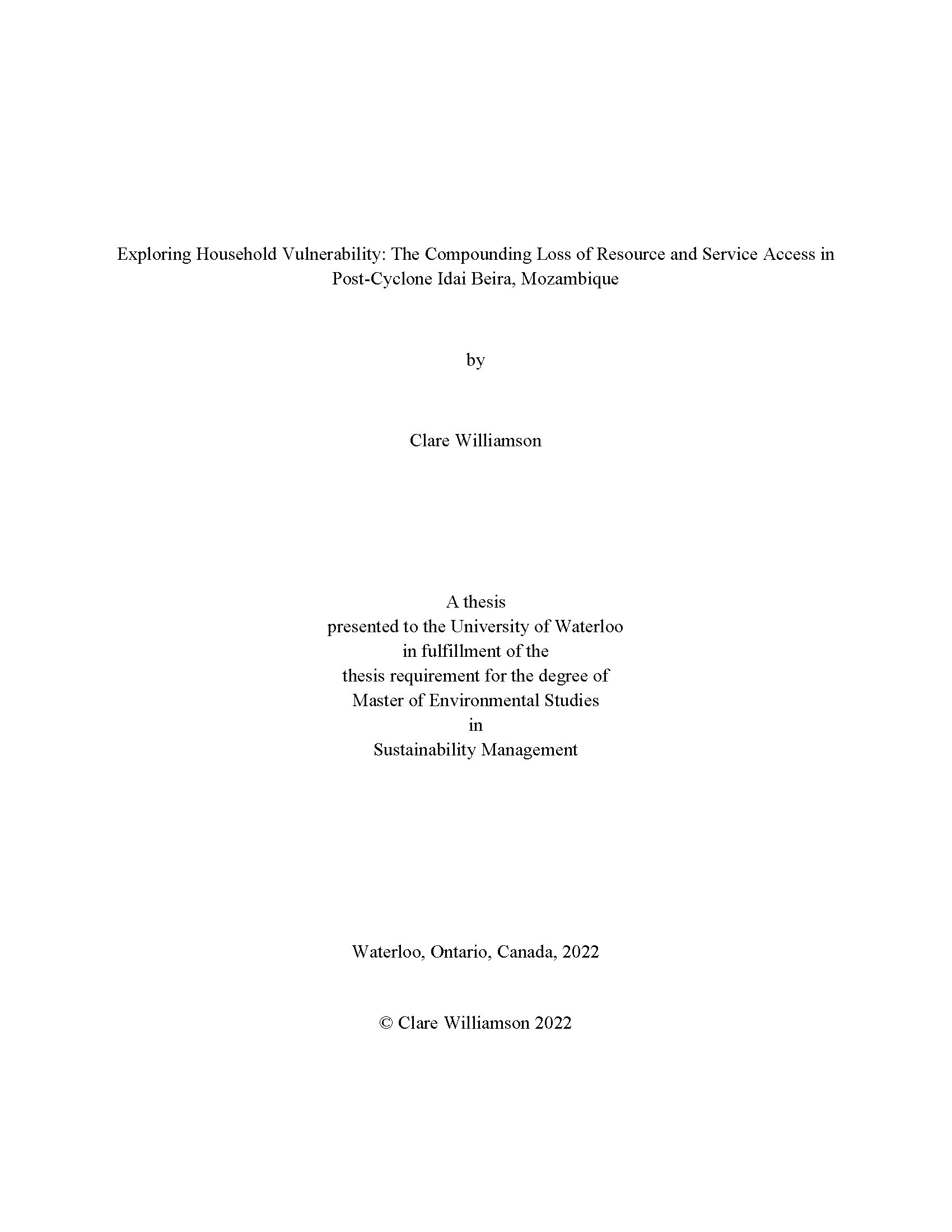– Master Thesis –
The rapid urbanization of secondary cities in the Global South poses significant challenges for equitable household access to basic services and resources. Climate-related disaster impacts within these secondary cities can catalyze the loss of household access to basic services, such as medical care, and vital resources, such as cash income. Given the importance of household access to these resources and services to disaster mitigation, the loss of consistent access to these services and resources can subsequently increase household vulnerability to further climate disaster impacts. As a result, the consistency of household access to basic services and resources can reveal important insights into disaster impacts at a household level within secondary cities. However, there is limited research exploring the relationships between the observed loss of consistent access to resources and services in Beira, a secondary city in Mozambique, and how these relationships contribute to the compounding nature of loss in consistent access to resources and services. In March 2019, Cyclone Idai made landfall in Beira, Mozambique, and resulted in one of the deadliest weather-related disasters in Southern Africa. This investigation explores the disastrous effect of Cyclone Idai and the multi-dimensional phenomena of resource and service loss experienced by Beira’s households. In pursuit of that aim, this investigation analyzed sociodemographic vulnerabilities of sampled Beira households prior to Cyclone Idai, compared the consistency of access to resources and services pre- and post-disaster and assessed the extent to which the consistency of access to these resources and services was correlated. The findings indicate that respondent households carried significant vulnerabilities before Cyclone Idai; lost consistent access to several resources and services after Cyclone Idai; and ultimately, that the loss of consistent access to those resources and services was correlated. These findings suggest that the households experienced compounded (co-occurring) losses in the consistency of their access to each of the identified resources and services, potentially predisposing the sampled households to further vulnerability in the wake of Cyclone Idai.

